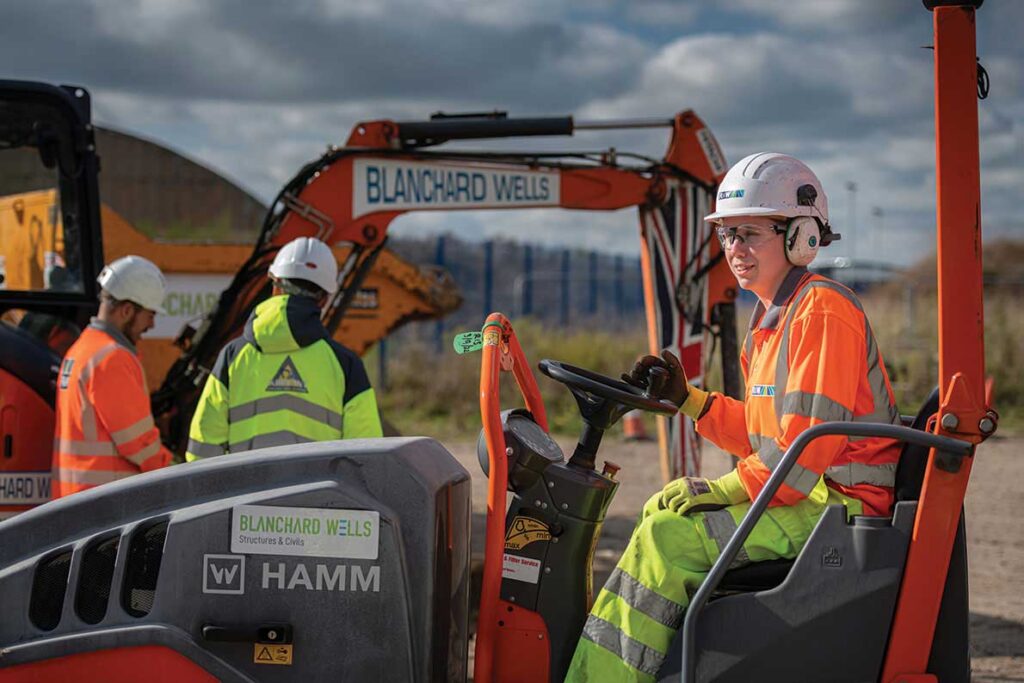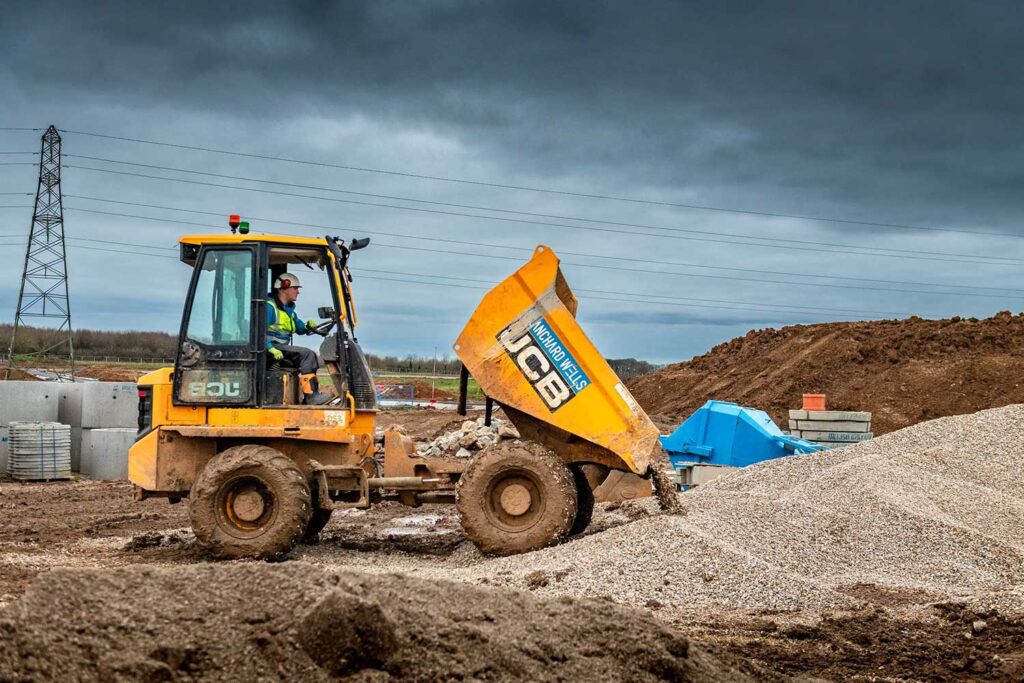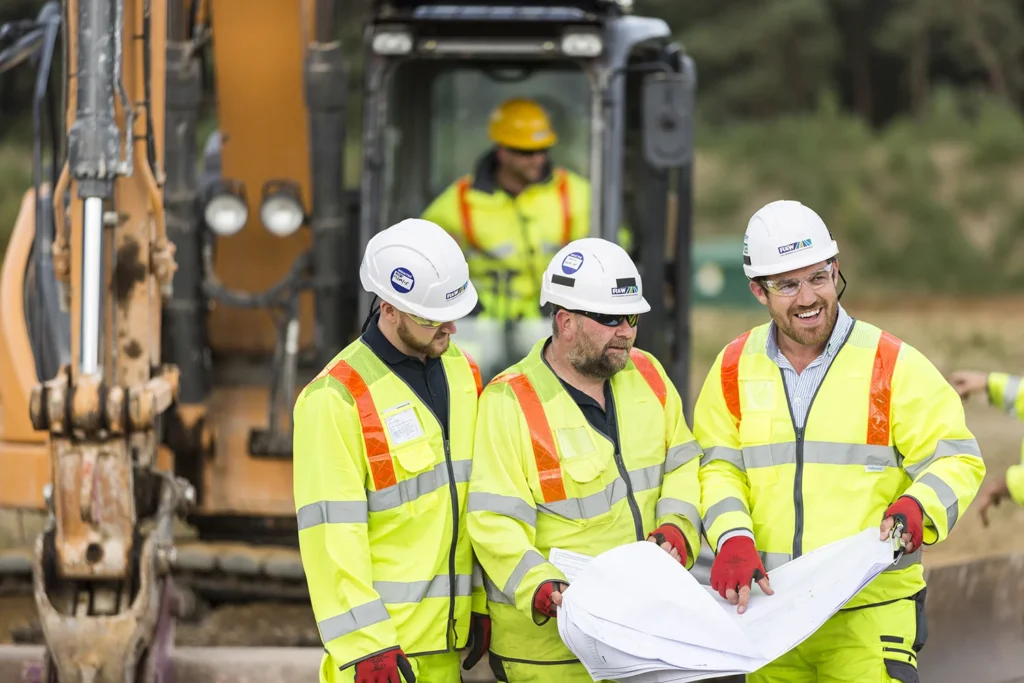What is Civil Engineering?
Civil engineering is the backbone of the built environment. It’s the science and art of designing, constructing, and maintaining the physical infrastructure that underpins our daily lives — from the water we drink to the roads we drive on.
From bridges and buildings to renewable energy systems and flood barriers, civil engineers make society function smoothly, sustainably, and safely. They play a key role in tackling some of the world’s biggest challenges — like climate change, urbanisation, and population growth — by creating solutions that are both innovative and practical.
Salary Range (UK)
£25,000–£80,000+ depending on level and specialism
In Demand
Yes – Civil engineers are on the UK Shortage Occupation List
Environment
Office-based, site-based, or hybrid; local or international

What Does a Civil Engineer Do?
Civil engineering is the backbone of the built environment. It’s the science and art of designing, constructing, and maintaining the physical infrastructure that underpins our daily lives — from the water we drink to the roads we drive on.
From bridges and buildings to renewable energy systems and flood barriers, civil engineers make society function smoothly, sustainably, and safely. They play a key role in tackling some of the world’s biggest challenges — like climate change, urbanisation, and population growth — by creating solutions that are both innovative and practical.
Types of Civil Engineering
Civil engineering is a broad field with multiple specialisms. Here are some of the most common areas:
Designing and managing transport systems — including roads, motorways, bridges, tunnels, airports, and railways — to keep people and goods moving efficiently and safely.
Water and Environmental Engineering
Working on clean water access, drainage systems, flood defences, sewage treatment, and sustainable urban drainage systems (SuDS). These engineers help protect ecosystems and ensure resilience to climate change.
Structural Engineering
Focusing on the strength, stability, and safety of buildings, bridges, and other structures. These engineers assess forces like wind, gravity, and seismic activity to ensure structures stand the test of time.
Geotechnical Engineering
Studying soil, rock, and ground conditions to design safe foundations, retaining walls, tunnels, and underground structures. This work is critical for projects built on or below ground.
Sustainable and Environmental Infrastructure
Designing infrastructure with minimal environmental impact — such as low-carbon buildings, smart energy grids, green transport networks, and circular waste systems.
Coastal and Marine Engineering
Developing harbours, sea defences, ports, and offshore wind farms, often using cutting-edge materials and techniques to manage erosion and rising sea levels.
Is Civil Engineering Right for You?
Civil engineering suits people who are:
- Problem-solvers – You enjoy working out how to make things better or more efficient
- Creative thinkers – You want to innovate, not just follow plans
- Detail-oriented – You can spot small issues that might cause big problems later
- Collaborators – You work well in diverse teams and across disciplines
- Driven by purpose – You want your work to benefit communities and the planet
- Adaptable – You’re ready to take on new technologies and work environments
Civil Engineering Career Pathways
Civil engineering offers a structured and rewarding career progression. Whether you start as an apprentice, technician, or graduate, there are clear routes to develop your skills and climb the ladder — especially with support from your employer.
Typical job roles and pathways include:
Hands-on learning while earning — typically through T Levels or apprenticeships.
Engineering Technician (EngTech)
Qualified professionals with technical responsibility and practical skills.
Graduate Civil Engineer
Often with a degree or HNC/HND, working towards professional registration.
Site Engineer / Design Engineer / Project Engineer
Mid-level professionals managing specific parts of a project, from structural design to onsite delivery.
Chartered Civil Engineer (CEng)
Senior professionals with high levels of responsibility and recognition. Chartership is achieved through structured training and professional development (ICE or similar).




